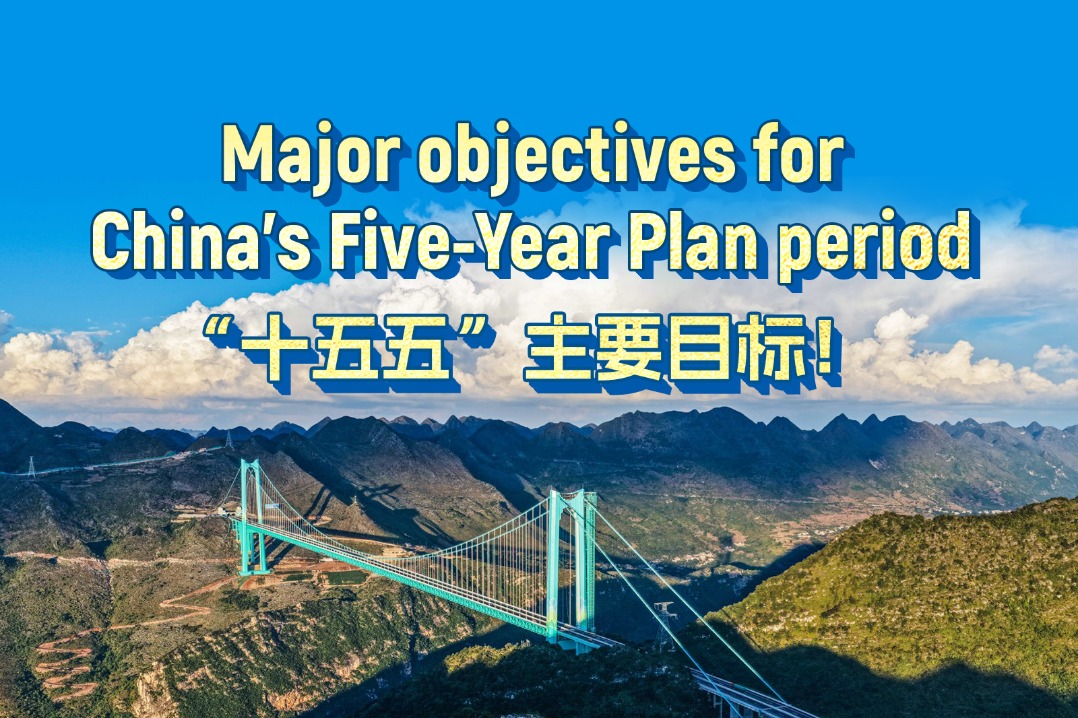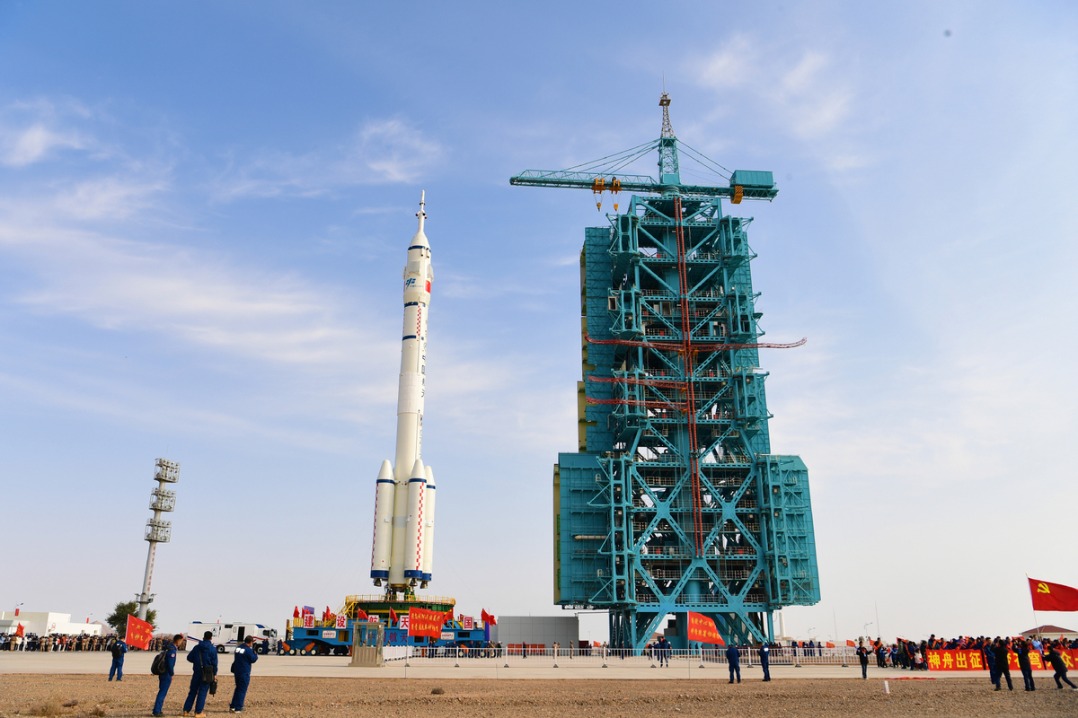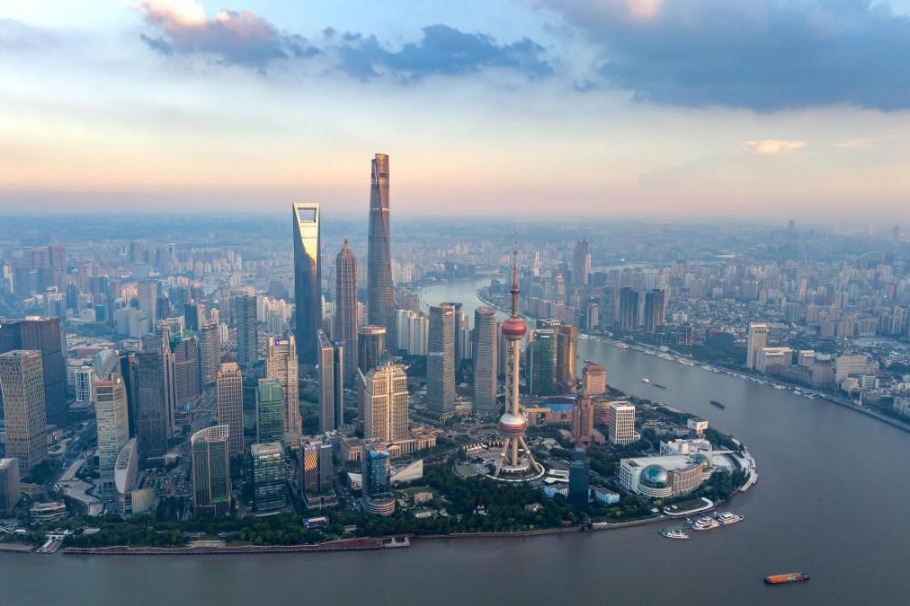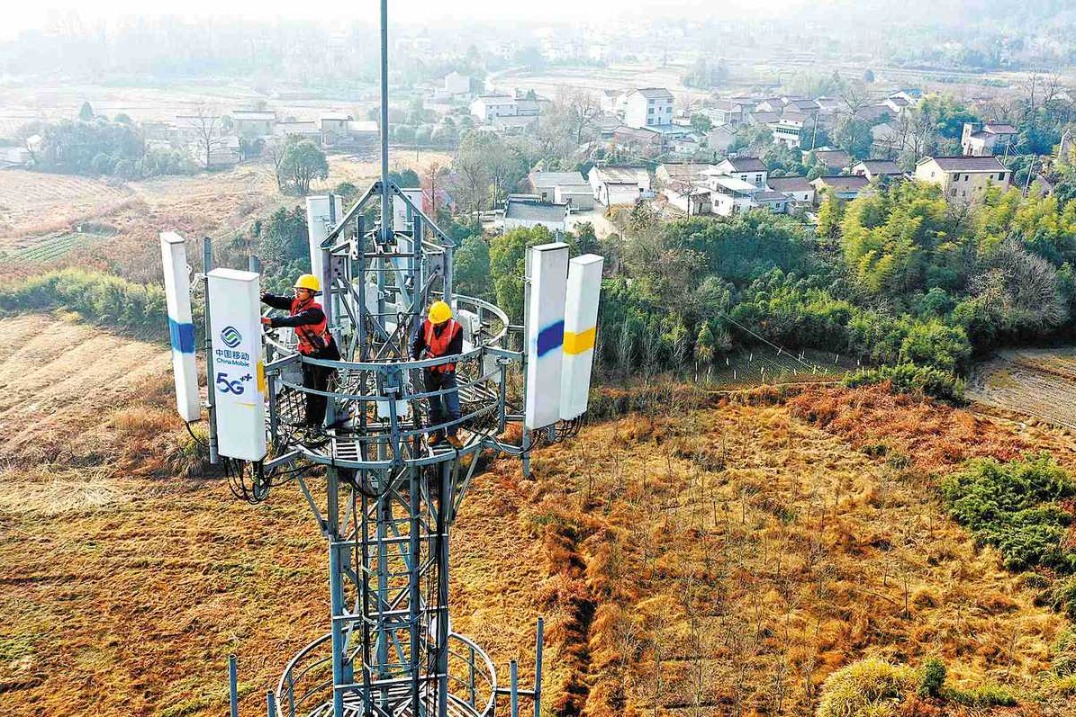Hallmark of contemporary China
By continuing to open wider to the world, the country is advancing domestic development while injecting fresh impetus into the global economy


Since the 18th Communist Party of China National Congress in 2012, the CPC Central Committee has been staunchly supporting economic globalization and promoting trade and investment liberalization and facilitation, while unswervingly expanding the country's opening-up.
The Belt and Road Initiative is a key part of these efforts.
China has, so far, signed over 200 cooperation agreements under the framework of the Belt and Road Initiative with more than 170 economies and international organizations.
With regard to infrastructure connectivity, over the past eight years, a connectivity network featuring "six corridors, six routes, and multiple countries and ports" has taken shape, facilitating trade among China and the countries and regions participating in the initiative.
The advancement of the Belt and Road Initiative has greatly accelerated trade facilitation, making the foreign trade cake bigger. From 2013 to 2020, China's trade in goods with economies involved in the initiative totaled $9.2 trillion.
Two-way investment between China and other Belt and Road economies has also maintained good momentum. The Asian Infrastructure Investment Bank's cumulative approved investment has exceeded $22 billion. And during the first nine months of this year, foreign direct investment in China from economies involved in the Belt and Road Initiative increased by 31.9 percent year-on-year.
With regard to closer people-to-people ties, over the past few years, China has vigorously carried out cooperation in such areas as education, science, culture, sports, tourism and healthcare under the framework of the initiative. In particular, since the outbreak of the COVID-19 pandemic, China and the other countries and regions participating in the initiative have been supporting and helping each other in fighting against the virus.
China has also been spearheading efforts to reform the global economic governance system to make it fairer.
To start with, China supports developing countries to have a greater say and representation in the global economic governance system and it advocates for improvements of the United Nations system and reform of the World Trade Organization. China is also an actively participant in international economic cooperation mechanisms. President Xi Jinping has attended all the G20 summits, pushing for a wide range of cooperation achievements and continuously promoting the improvement of the multilateral governance mechanism.
Furthermore, over the past few years, China has accelerated the pace of building a high-standard free trade network by signing free trade agreements with countries such as Iceland, Switzerland, the Republic of Korea, Australia, Georgia, the Maldives, Mauritius and Cambodia. In November 2020, under China's active promotion, the Regional Comprehensive Economic Partnership agreement was officially signed. Negotiations on the China-EU Comprehensive Agreement on Investment were concluded last year. Recently, China officially applied to join the Comprehensive and Progressive Agreement for Trans-Pacific Partnership.
China has also been striving to build the China International Import Expo into a global public good.
Hosted by China, the CIIE is the world's first import-themed national-level expo and is an open platform that features "buy from the world, sell to the world, and benefit the world". To date, the CIIE has been held for four consecutive years, becoming a global public good consisting of four major platforms for international procurement, investment promotion, cultural exchanges, opening-up and cooperation.
In international procurement, the CIIE has attracted a large number of Fortune 500 companies and industry leaders to showcase their new projects and services, boosting participating countries' exports to the Chinese market as well as helping to satisfy Chinese consumers' consumption demand.
In investment promotion, many Chinese provinces, autonomous regions and municipalities have made the most of the CIIE platform by holding various activities including investment promotion and project introduction meetings. Large-scale trade and investment matchmaking meetings organized by the third CIIE resulted in 861 letters of intent for cooperation.
In cultural exchanges, participating countries have made the best use of the "country exhibition" to showcase their distinctive cultures and advantageous industries, making the CIIE an important window for participating countries to introduce their cultures to the Chinese people.
In opening-up and cooperation, the CIIE has become an international platform for supporting economic globalization and safeguarding the multilateral trade system, gathering strength for global opening-up and cooperation. In particular, the High-level Dialogue of Hongqiao International Economic Forum, a major part of the CIIE, has become a high-end dialogue platform for soliciting new ideas and building global consensus as well as a high ground for carrying forward multilateralism.
At the Third Plenary Session of the 18th CPC Central Committee held in 2013, it was decided that China would build a network of high-standard free trade zones with global reach. In September 2013, the nation's first pilot free trade zone was set up in Shanghai. In October 2017, the 19th CPC National Congress decided to give free trade zones more autonomy in reforms and explore the establishment of a free trade port. Based on this, the Hainan Free Trade Port was launched.
To date, China has established a pilot free trade zone (ports) network covering its eastern, western, southern, northern and central regions. Their reform plans cover over 3,300 pilot reform tasks, realizing a historic shift in foreign investment management over the 40-plus years of reform and opening-up. First, with the negative list as the core, China has realized major breakthroughs in foreign investment management in the pilot free trade zones (port). Second, China has established a trade supervision mechanism dovetailed with international rules and norms. Third, China has initially built a modern governance system by focusing on streamlining administration and delegating more powers to lower-level governments.
China's free trade zones (and ports) have become important platforms for China to elevate its reform and opening-up to new heights.
The author is president of the Chinese Academy of International Trade and Economic Cooperation, the research body affiliated with the Ministry of Commerce. The author contributed this article to China Watch, a think tank powered by China Daily. The views do not necessarily reflect those of China Daily.
Contact the editor at editor@chinawatch.cn
































